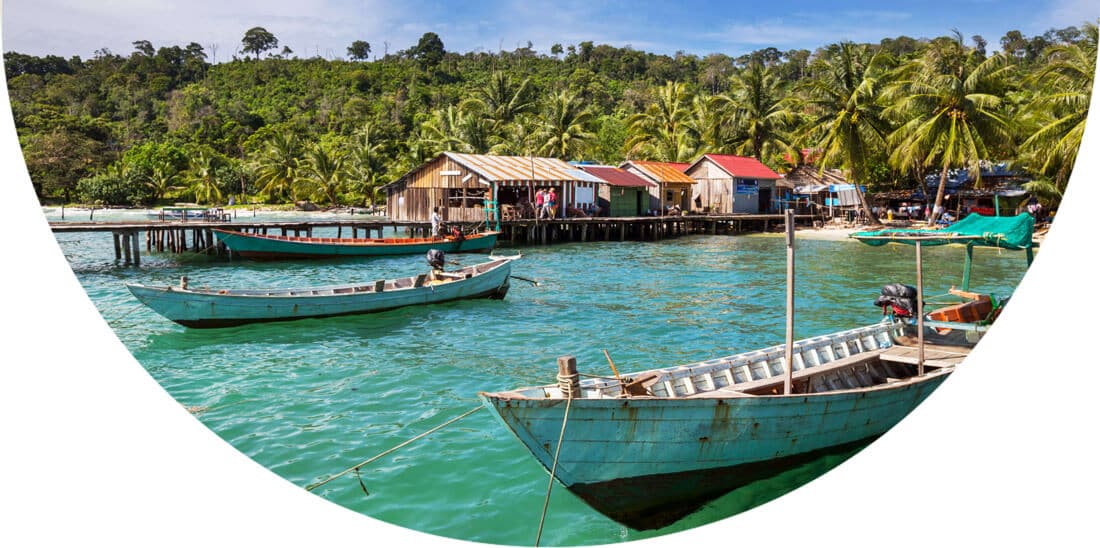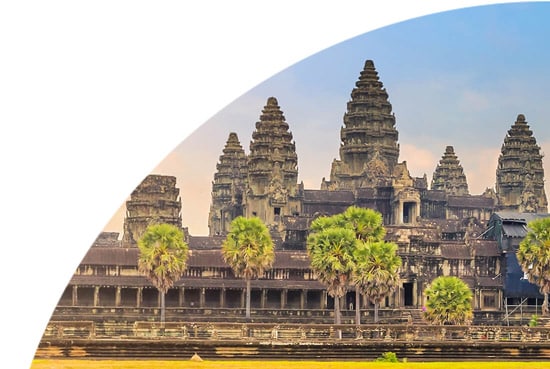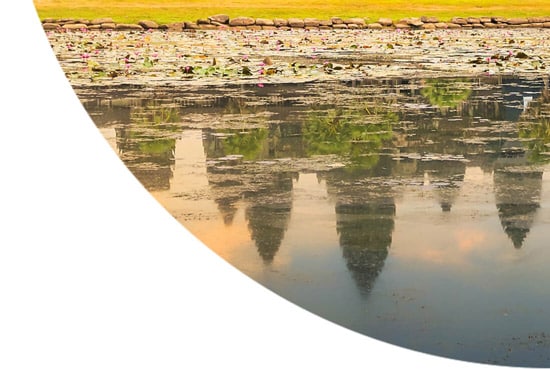Scrub typhus, also known as bush typhus, is a bacterial disease that is spread to people through bites of infected chiggers (larval mites). Common symptoms include fever, headache, body aches, and sometimes rash. It can usually be treated with antibiotics, however people with severe illness may develop organ failure and bleeding, which can be fatal if left untreated.


Travel Vaccinations for Cambodia
Recommended Vaccines for Cambodia
The level of protection needed depends on your medical history and travel itinerary. Book now to get a personalised recommendation from our specialist travel nurses. The consultation costs £20 plus any vaccines you decide to take.
Flexible appointments with no upfront payment
Book Now
Destination Information for Cambodia
Cambodia is located in Southeast Asia bordering Thailand, Laos and Vietnam, and like its neighbours, there is so much to do! From visiting the temples of Angkor, taking a trip down the rivers or just unwinding on the beach soaking up the sun, there’s something for everyone. Cambodia does have a monsoon season from May until November where there are tropical rain storms. The first half of the season tends to be very warm and humid with rain storms while the second half of the season will see the temperatures drop and cool off slightly but still be very wet. March to May is when the sun is at its hottest with temperatures reaching around 35°C degrees.
For those who like to explore the cultural side of the country, head to the temples of Angkor which are near Siem Reap. When you enter the temples you must remember to cover up your knees and shoulders as a mark of respect to their traditions. For an adventure, try out Cardamom Mountains and enjoy a jungle trek through the largest mangrove forest in South East Asia. Shopping in Cambodia can be quite fun – you can haggle for almost anything from souvenirs to meals in restaurants.
To ensure that your exploration of Cambodia stays uninterrupted, make sure you get the appropriate travel vaccinations before setting out. Our team of nurses can provide you with all the information you need, so book a consultation at one of our travel clinics. Standard vaccinations include Hepatitis A, Typhoid and Tetanus. Other risks include Rabies, Hepatitis B, Japanese encephalitis and in some instances Cholera.
Infections and Outbreaks frequently change from country to country and by attending our clinics you will be given the most up to date clinical and safety advice from our team of specialists. Our advice to you often includes aspects such as:
- Food and water hygiene
- Insect and animal bite avoidances
- Personal safety
- Sexually transmitted infections
- Sun protection
- Altitude sickness
Non Vaccinated Diseases
Additional Health Risks Information for Cambodia
Visitors to Cambodia should be aware of personal safety and security at all times. While most Cambodians are friendly, crime is an issue in the country, and tourists are particularly vulnerable to theft, attacks and scams. Take sensible precautions to protect yourself and your belongings when out and about in Cambodia.
The country is affected by landmines and unexploded bombs. Mine areas may not be marked, so stick to main routes, particularly in rural areas. Vehicles, including cars, motorbikes and even boats, are often poorly maintained and dangerous to use, so road accidents are common. If you’re planning on using a tourist boat, take note of the weather conditions and satisfy yourself that it is safe to do so, as some operators continue to run despite weather warnings in place.
Be particularly aware of avoiding animals as rabies is prevalent. Mosquito borne disease like, dengue fever and the Zika virus are present, use 50% deet over your sunscreen during the day to prevent mosquito bites. It is a Japanese encephalitis endemic area, discuss the option of vaccination with a travel clinic before you travel. If you are pregnant or planning to become pregnant you should not visit Cambodia.
Public health centres, hospitals and clinics in Cambodia are very poor, and often do not exist outside major cities. Depending on your condition, you may need to be evacuated to a neighbouring country for treatment, so ensure that you have appropriate travel insurance in place should this become necessary.



